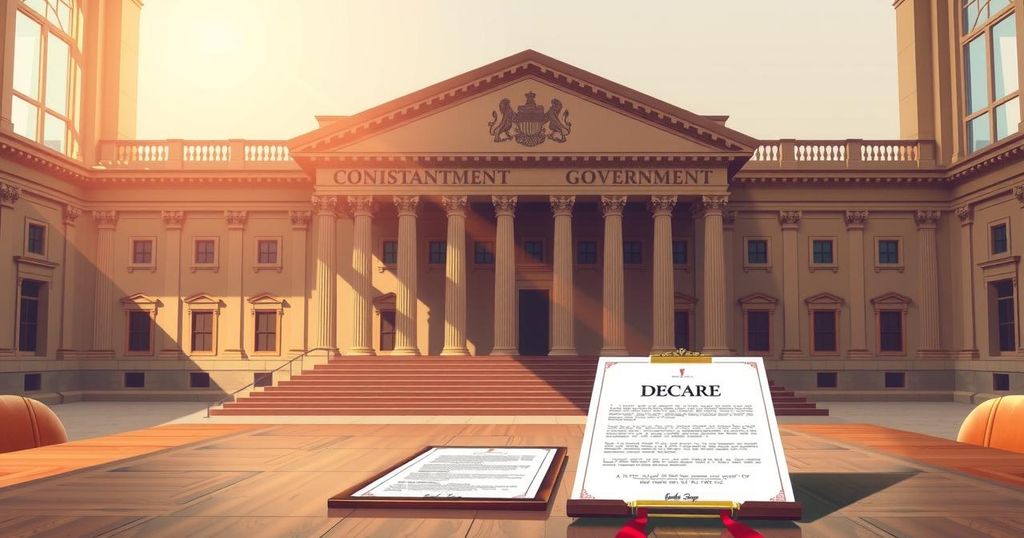Argentina is moving to formalize a new IMF program through a decree that may unlock vital financial support. Under President Milei, austerity measures are reducing fiscal deficits; however, further funding is necessary to sustain these reforms. The proposed loan could be significant, with Milei emphasizing its potential to address inflation and stabilize the economy during a crucial election year.
Argentina is progressing towards formalizing a new program with the International Monetary Fund (IMF), as indicated by a decree of necessity and urgency (DNU) published in the official gazette. This initiative could provide vital financial aid to meet Argentina’s debt obligations and help lift existing capital controls.
Under President Javier Milei, drastic austerity measures have been enacted to reduce fiscal deficits and address the country’s soaring inflation. However, the government requires further financial support to sustain these changes, especially given that central bank reserves are in a negative state and significant debt repayments are approaching.
The decree specifies the need to urgently diminish the National State’s debt to the central bank (BCRA) to stabilize the economy and enhance liquidity in international reserves. The proposed extended fund facility (EFF) would feature a ten-year repayment timeline, with a grace period of 4.5 years, aimed at addressing Treasury debt, though the overall loan magnitude remains unspecified. Reports from financial institutions like UBS, Morgan Stanley, and Bank of America suggest that loan amounts might vary between $5 billion and $20 billion.
Milei has reached out to lawmakers to authorize the proposed IMF loan agreement. The decree serves as a strategic component for the libertarian president to facilitate the IMF deal’s passage through Congress, implying that an agreement might soon be forthcoming.
Argentina’s existing IMF debt amounts to approximately $44.5 billion, originating from a Stand-By Arrangement formed in 2018 during an era of capital flight and peso depreciation. An Extended Fund Facility deal was reached in 2022 but concluded in September 2023. Milei has posited that the new, negotiating IMF agreement could stabilize the central bank and ultimately curb inflation.
In a recent op-ed for La Nacion, Milei noted that the impending deal would provide the treasury with funds to comprehensively pay off part of its debts to the BCRA, which he views as a significant contributor to the persistent inflation issues.
The timing of this potential agreement is critical, as Argentina approaches mid-term legislative elections later this year. The attainment of IMF support may be pivotal for Milei, influencing both the success of his economic reforms and his party’s electoral prospects.
In conclusion, Argentina’s government is making strides towards securing a new IMF program, which is crucial for addressing its financial challenges. The passage of a DNU seeks to facilitate this initiative, underscoring the administration’s need for monetary support amidst ongoing economic reforms. With significant political stakes involved, the successful negotiation of this deal could decisively impact Argentina’s economic stability and President Milei’s political future.
Original Source: www.bne.eu






